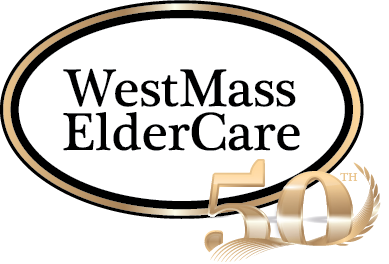
When you have a disability or chronic health condition, doing everyday tasks can be difficult. By supporting consumers with laundry, shopping, housekeeping, bathing, taking medications, maintaining wheelchairs, or transporting to medical appointments, Personal Care Assistants (PCAs) can make an extraordinary impact on consumers in need.
In the interview below, Diana Crespo, Functional Skills Training Supervisor, and Jonna Hamel, MassHealth Coordinator/RN Supervisor, discussed with us what Personal Care Assistance is, its importance, how to become a PCA, and program eligibility.
How are you involved with WMEC?
Diana: I am the Supervisor for the Functional Skills Trainers in the Personal Care Management (PCM) Department.
Jonna: I am involved as the Nursing Supervisor and the Mass Health Coordinator for the PCM program. I additionally assist my nurses by actively conducting the required nursing evaluations for the program and MassHealth. I attend MassHealth informational sessions biweekly to obtain pertinent information to assist our program in providing the best possible outcome and service they require. In my 11 years at WMEC, not a day has gone by that I have not enjoyed the opportunity to allow loved ones to remain in their own homes, in the community, and out of nursing facilities by providing this service to them.
Tell us what Personal Care Assistance is?
Jonna: Personal Care Assistance provides hands-on care for those who are MassHealth eligible, have a chronic disabling diagnosis, have two hands-on activities of daily living needs, and would prefer having a family member, friend, or acquaintance provide care that they otherwise are unable to provide for themselves. The joy of having these consumers remain in an environment they are familiar with, around people they feel safe with, is so rewarding. Personal Care Attendants, like WMEC’s Personal Care Management staff, form a special bond with the consumers. It is essential in those with dementia or Alzheimer’s, where confusion and behaviors can grow in unfamiliar places.
How can someone become a Personal Care Attendant?
Diana: If a person wants to work as a PCA, they need to find employment with a Consumer/Employer. Individuals can register and look for Consumers/Employers on the masspcadirectory.org website.
Jonna: The best part is that they can hire someone they trust and rely on to provide the care needed. There becomes a bond between the consumer and the Personal Care Attendant due to needing to know and being entrusted with intimate details.
Who is eligible to receive these personal care services?
Diana: An individual must fulfill the following requirements: (1) They must be Mass Health Standard eligible, and (2) they must have a chronic and disabling condition that requires physical, hands-on assistance with at least (2) Activities of Daily Living (ADLs), such as bathing, dressing, toileting, medication administration, transfers, mobility, and feeding.
What sort of activities and care do Personal Care Attendants provide?
Jonna: If a consumer is eligible with at least two of these areas with hands-on daily assistance, they will receive some applicable time for IADLs or Instrumental Activities of Daily Living. These activities include laundry, housekeeping, shopping, meal preparation, and transportation to or from medical appointments.
Why would you encourage someone to become a Personal Care Attendant?
Diana: As a former Personal Care Attendant, I would encourage others because working as a Personal Care Attendant is fulfilling, especially knowing that you are making it possible for someone to remain in their home. I recently worked with a daughter who was able to get her mother on the program, and become her PCA, allowing her to take care of her mother and have the ability to keep her at home. It allowed her to spend time with her mother, instead of having to find work outside the home and worrying about her mother’s health. It has also allowed other family members to become PCAs and to be able to pitch in because of it. They say it’s the best thing that ever happened to them!
Jonna: Providing care for someone in need that otherwise would end up in a nursing facility and allowing that person to remain in their own home to be cared for is rewarding enough, but when that care is delivered by a family member, friend, or a trusted individual, it is beneficial not only to the consumer but also to the Personal Care Attendant. In my multiple years working with WMEC, I have had so many amazing experiences with our consumers. One in particular grew incredibly fond of me and was hesitant to allow anyone else to see her. You really do develop strong bonds. The most heartfelt moments are when family members reach out after their loved ones pass to personally say thank you for our services and the extra kindness we provided during their ailment or progressive aging.
Who should someone reach out to if they would like to receive PCA services?
Jonna: First, approval for the program is required. If a consumer is searching for assistance, they can call our wonderful information and referral department at 413-538-9020 x500 who will take all pertinent information from the referral source, relay qualification needs, and make the referral to the appropriate department within WMEC. If this ends up being Personal Care Management, the referral is processed through to our department, assigned to a Functional Skills Trainer, Occupational Therapist, and nurse to evaluate, and the evaluations are submitted to MassHealth for approval. Once approval is obtained from MassHealth with the allotted hours, the Functional Skills Trainer will go back out and set up the person the consumer chose to provide their care.
To learn more about Personal Care Assistance, visit our website at https://www.wmeldercare.org/personal-care-attendant/.


